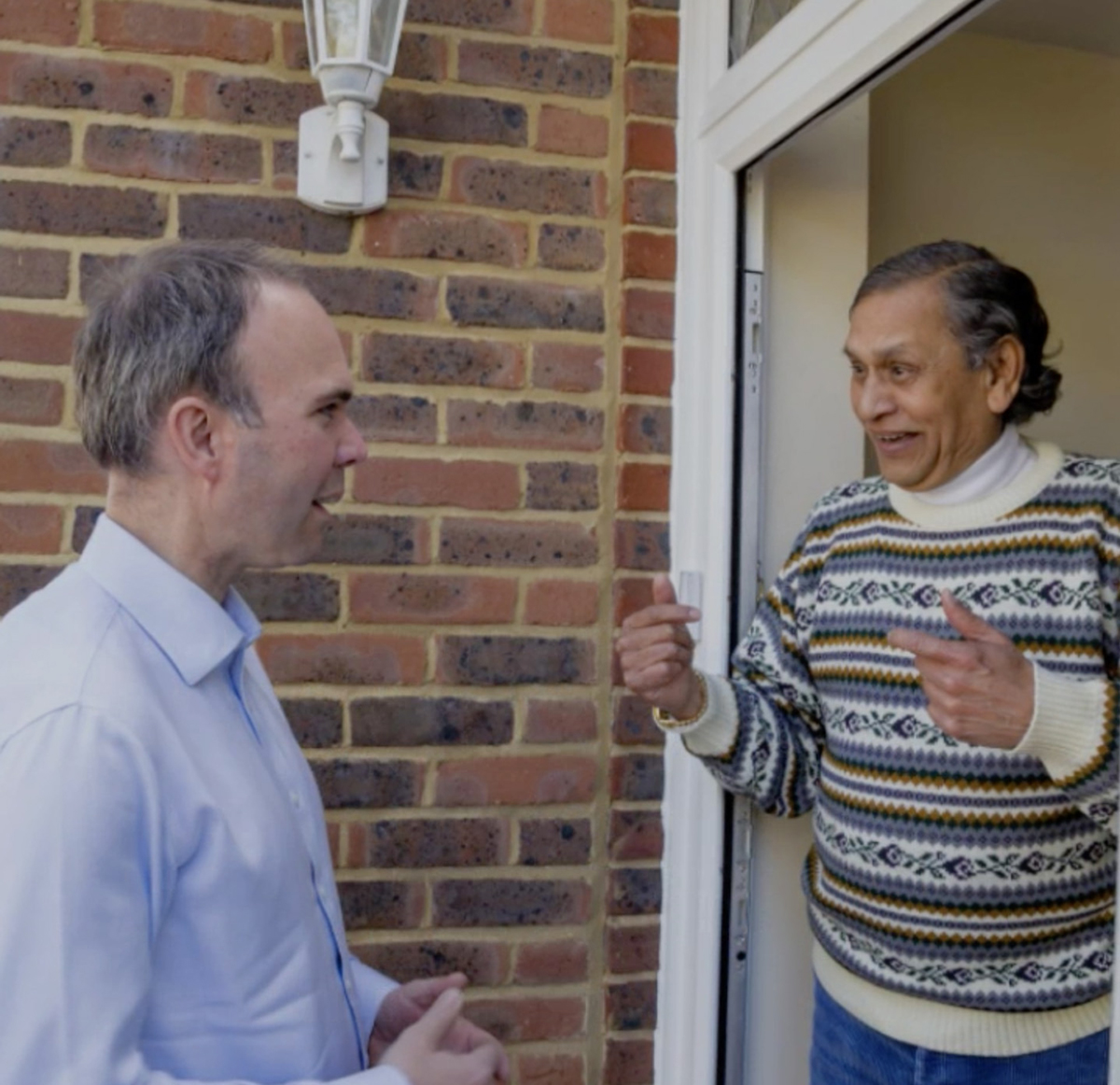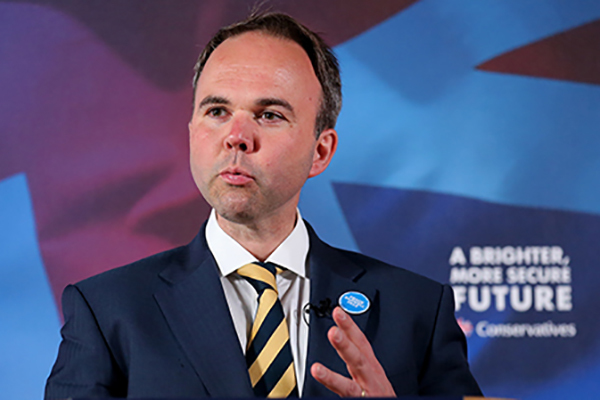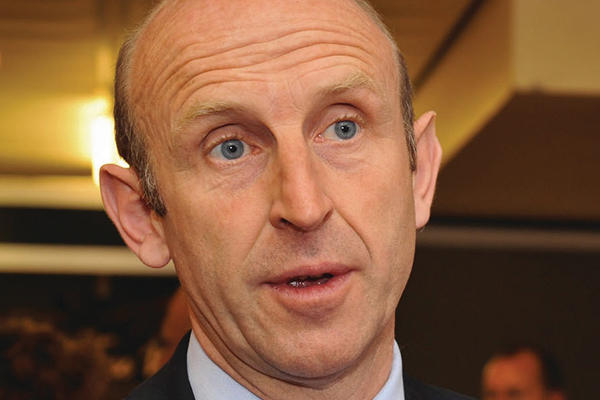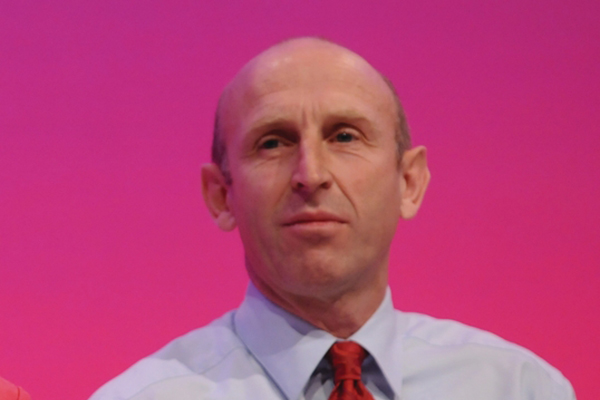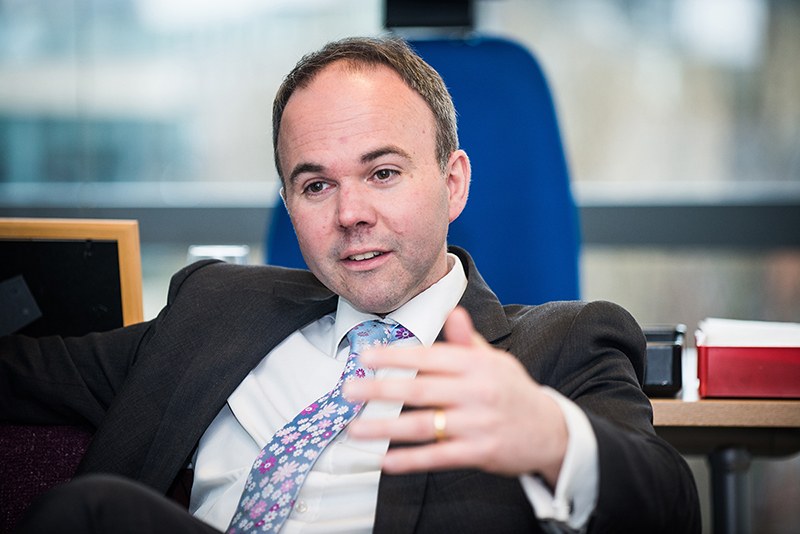You are viewing 1 of your 1 free articles
Exclusive interview: Barwell on the beat
Sophie Barnes catches the housing minister on the campaign trail to clear up questions over the Conservative manifesto
Gavin Barwell is pressed for time. The housing minister has a week to convince the local residents of Croydon to vote for him in a constituency that is nail-bitingly close.
At the last election he won by just 165 votes and he is taking nothing for granted - focusing his energy on hitting the streets and doorsteps of his constituency, with media engagements kept to a minimum.
But Inside Housing has been keen to speak to the Conservatives’ de facto housing spokesperson to shed some light on two pressing questions which arose after it revealed its flagship housing policies two weeks ago.
PM’s promises
First, Theresa May promised “a new generation of homes for social rent”, sparking a pleasant but unexpected surprise for the sector.
One of the Conservatives’ most controversial housing policies was the decision in 2010 to replace funding for social rent - traditional council rents which can be around 40% of the market rate - with ‘affordable rents’ which are up to 80% and lock out many tenants on benefits and low incomes.
Ms May, it seemed, was partially reversing this decision, but with no detail forthcoming on the actual rent levels she planned, it was hard to be sure.
Second, what of the 2015 manifesto’s big housing promise?
The pledge to sell high-value council homes to pay for the Right to Buy extension has been moved down the government’s priority list and into the long grass.
Now, it has been left out of the manifesto entirely. So is the party still committed to it?
Mr Barwell’s team granted Inside Housing a short audience with the minister on a muggy Tuesday morning in New Addington, as he and his team prepare to hit the doorsteps on the campaign’s final straight.
So does Ms May’s promise of social rent mean a return to traditional low-cost rents? His answer will disappoint those hoping it will.
“I think the idea is that they are what you’d call affordable rents in housing terminology, but they are social housing,” he admits.
So the idea is a bit less revolutionary than it first seemed - the government was already fairly solidly committed to building some affordable rented housing with the £1.4bn of housing funding announced in the Autumn Statement.
He won’t be drawn on exactly how many homes will be built by councils, but says there will be “thousands a year”.
Pressing question number two holds some better news for social housing campaigners, though.
Mr Barwell will not commit to going ahead with the sale of high-value council homes as planned to fund the Right to Buy for housing associations. “That’s a decision to take at the point at which we roll out the national scheme. The regional pilot is funded directly by the Treasury but as and when we move to national roll-out, that’s a decision we’ll take with the chancellor,” he says.
This is in contrast to an interview he gave to Inside Housing in March, when he said the policy might be “mitigated” but insisted the government was still committed to it.
Right to Buy plan
The extension of the Right to Buy to housing associations, however, appears to stand. “There’s a reference in the manifesto that we still want to help association tenants to buy their home,” he says. “We want to get on with the regional pilot this year, then proceed with a national roll-out.” But if high-value sales don’t go ahead, there is a question mark over how this will be paid for.
There is also some good news in how the government plans to get this new generation of social (or affordable) homes built.
The manifesto pledged to do deals with “ambitious, pro-development” councils and Mr Barwell said this would include lifting the Housing Revenue Account (HRA) cap in some instances.
There are some who want to do it through the HRA where there is a pressing need and they’re up against their cap at the moment.
That’s why the Housing White Paper had this hat tip to negotiating bespoke deals. This manifesto commitment is a development of that idea.”
"We’ve got to come up with a funding model that gives people the confidence to invest in and build that housing"
Another question mark is a reference in the Conservative manifesto to giving “greater flexibility” to housing associations to help them build more homes.
Would this be the rental freedom much of the sector is lobbying for?
Mr Barwell will not be drawn, but says if a Conservative government is re-elected it will give a “very clear” steer to the sector “as soon as we can after the election”.
The sector will also be seeking a clear steer on a policy which has received wide criticism - the plan to cap rents in supported housing at Local Housing Allowance (LHA) levels.
A consultation on this closed in February and providers are keen for a response.
Mr Barwell strikes a tone of reassurance. “One of the first things that’s going to be in my in-tray is the response to the consultation we did.
“We’re going to have to look at that but my message to reassure people is, as a government, we desperately need more supported housing to be built. You can see the reference in the manifesto to solving the social care crisis and supported housing has a key role to play in that.
“Therefore we’ve got to come up with a funding model that gives people the confidence to invest in and build that housing. We want to listen very carefully to what everyone’s had to say and make sure the model we’ve got is one that can command people’s confidence,” he adds.
There have been rumours circling on the minister’s own future, with some suggesting his impressive performance has put him in line for a promotion if a Conservative government is re-elected. Mr Barwell is coy in response.
“All I can say is it’s been a huge honour to serve as housing and planning minister. I’ve immensely enjoyed working with people throughout the sector”, he says.
"The White Paper has moved housing policy on a long way and we’re beginning to build a pretty broad consensus about what needs to be done. If I was reappointed I would be delighted to continue that work.”
But to get there, an election must first be won. And with that, Mr Barwell says his farewells, calls out “have you got some leaflets for me?” to his posse of campaigners, then strides off to try and seal the deal.
